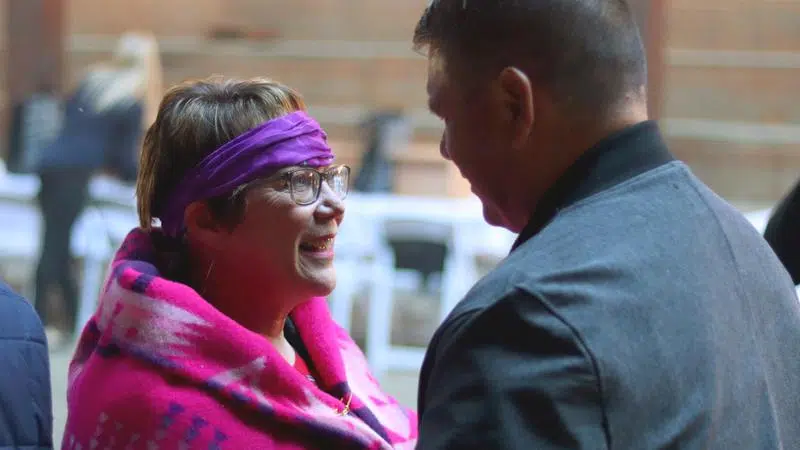
New Zealand minister visits Nanaimo to learn about Indigenous child services
NANAIMO — New Zealand’s Minister for Children met with Indigenous Nanaimo representatives to learn how to best care for Indigenous children.
Minister Tracey Martin’s Canada-wide education tour was greeted with traditional songs and dance at a ceremony in Cedar on Wednesday, Oct. 9.
The ceremony on Snuneymuxw First Nation land capped morning meetings with local officials from Kw’umut Lelum Child and Family Services about its child services model, which aims to prevent Indigenous children from entering government-run care.
“We’re on a journey,” Martin said. “Similar to Canada and the First Nations here, we are trying to devolve responsibility from government to Maori regarding child protection and child care.”


